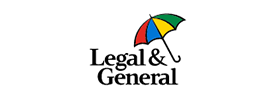If a disaster such as a fire, windstorm or hailstorm damages your home, you are your own best advocate. Keep scrupulous records of conversations with your agent, your policies and what was damaged.
It’s important to know well in advance of a disaster what your insurance policy does and doesn’t cover. It’s smart to review your insurance policy at least once a year to make sure it’s up to date and the coverage is adequate. Regular homeowners insurance doesn’t cover floods, hurricanes or earthquakes, so if you live in an area subject to those risks, you may need additional policies. According to the Insurance Information Institute, underinsurance is a huge, chronic problem, especially when homes are destroyed.
Here are nine ways to get the best results from your insurance claim after a disaster:
Know what your policy covers. Every insurance policy is different in regards to coverage. Deductibles may not be the same for all types of claims. Does your policy pay for the actual cash value of your home and contents, or do you have replacement cost coverage, which pays the cost of buying new stuff or rebuilding your house, with some limitations?
Document your loss. That could mean providing photos or video showing the damaged items or producing a copy of a household inventory or receipts. The burden of proof is on you
Protect your home from further damage. If your roof is blown off or your windows are broken, the insurance company expects you to secure those openings before more damage occurs, which may not be covered.
Negotiate if you don’t like the initial offer. Get estimates from multiple contractors and send them to the insurance company with your request for reconsideration.
Know that the money won’t necessarily go to you. Most insurance checks are written to the company holding your mortgage, which then has to send the money to you.
Hire licensed contractors. Get at least three estimates, and check references, licenses and insurance. Never hire a contractor who says he was simply “in the neighborhood.” After a disaster, reputable contractors don’t need to solicit business, and those who go door to door are often unlicensed at best and scammers at worst.
Vet the contractors recommended by your insurance company. In some cases, insurance companies have a list of contractors who have agreed to do the work for what the company will pay. Ask about warranties, references, licenses and insurance
Consider hiring a public adjuster. If you’d rather let someone else handle your claim, or if you feel the amount offered is inadequate, a public adjuster may be able to help. Before you hire a public adjuster, ask for references and check the adjuster out as you would any other contractor.
Beware of scams. Disasters bring scam artists and charlatans out of the woodwork. Be wary of out-of-town roofing companies and contractors who are simply stopping by to solicit your business. Remember that good contractors don’t need to solicit business after a disaster.






















